-
About Earth In Vision
Read now to access more details of About Earth In VisionThe Earth in Vision project explores the BBC archives of environment themed television and radio programmes from the last 70 years, looking at the potential of these archives as a digital resource as well as to illustrate the potential of digital broadcast archives for researchers.
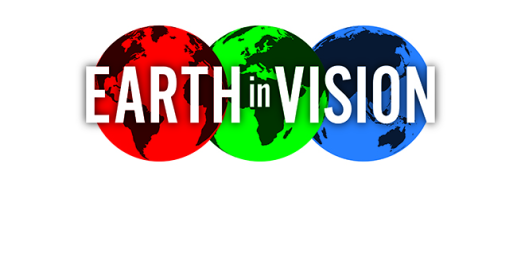
Article
Level: 1 Introductory
-
Joe Smith - Earth In Vision Introduction
Watch now to access more details of Joe Smith - Earth In Vision IntroductionJoe Smith, Professor of Environment and Society at The Open University, introduces Earth in Vision and explains why it is so valuable.

Video
Level: 1 Introductory
-
Sir David Attenborough - Earth in Vision
Watch now to access more details of Sir David Attenborough - Earth in VisionSir David Attenborough discusses his inspirations, regrets, CGI, digital archive and the future of the planet.

Video
Level: 1 Introductory
-
Desmond Morris - Earth In Vision
Watch now to access more details of Desmond Morris - Earth In VisionPioneer of natural history television Desmond Morris discusses Zoo Time, digital archive, David Attenborough, climate change, human behaviour and the future.
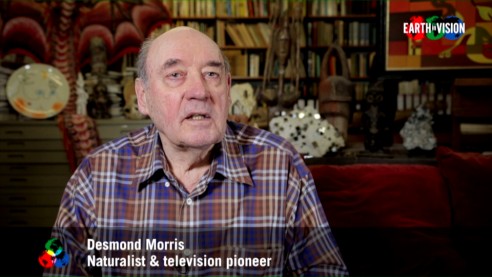
Video
Level: 1 Introductory
-
Alastair Fothergill - Earth in Vision
Watch now to access more details of Alastair Fothergill - Earth in VisionAlastair Fothergill, former Head of the BBC Natural History Unit and Series Producer of 'The Blue Planet', 'Planet Earth' and Executive Producer of 'Frozen Planet', talks inspiration, green issues and Sir David Attenborough.
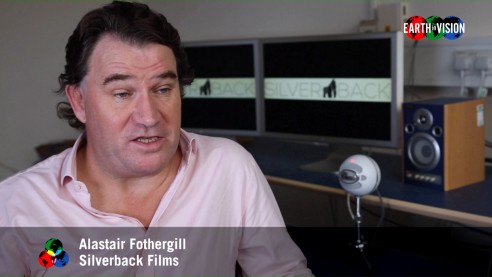
Video
Level: 1 Introductory
-
Vanessa Berlowitz - Earth in Vision
Watch now to access more details of Vanessa Berlowitz - Earth in VisionVanessa Berlowitz, world-renowned wildlife film producer and director, talks inspiration, archive and her optimist for the Earth.
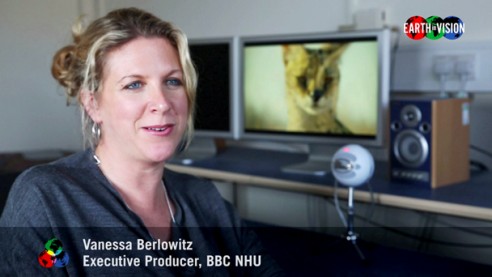
Video
Level: 1 Introductory
-
Krishan Arora - Earth in Vision
Watch now to access more details of Krishan Arora - Earth in VisionKrishan Arora, consultant producer and former BBC commissioner, discusses the issues around commissioning environmental programmes in both the UK and abroad - including the once-upon-a-time industry reluctance to use the word "environment" - and outlines the ethical issues surrounding making archives open to the public.
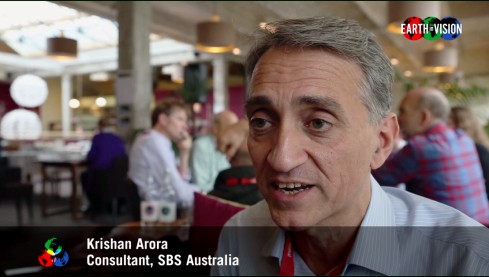
Video
Level: 1 Introductory
-
Amanda Theunissen - Earth in Vision
Watch now to access more details of Amanda Theunissen - Earth in VisionAmanda Theunissen, Editor of 'Nature' in the eighties, discusses environmental issues, The Octonauts and digital archive.

Video
Level: 1 Introductory
-
Lawrence Breen - Earth in Vision
Watch now to access more details of Lawrence Breen - Earth in VisionLawrence Breen, award-winning Archive Researcher, shares his insights on the technical and creative issues surrounding the use of archive for natural history and environmental broadcasting.
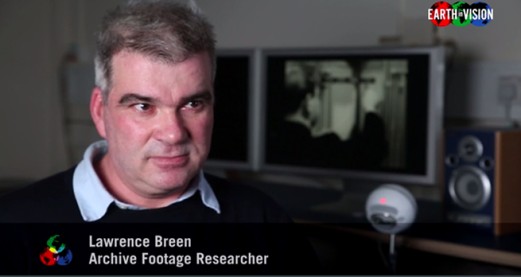
Video
Level: 1 Introductory
-
Richard Brock - Earth in Vision
Watch now to access more details of Richard Brock - Earth in VisionRichard Brock, founder of the Brock Initiative and Living Planet Productions, discusses 'Life on Earth', archive and conservation issues in broadcast.

Video
Level: 1 Introductory
-
Mary Colwell - Earth in Vision
Watch now to access more details of Mary Colwell - Earth in VisionAward winning TV, Radio and Digital producer Mary Colwell discusses her inspirations, what she is proud of, environmental issues and her hopes for the future.
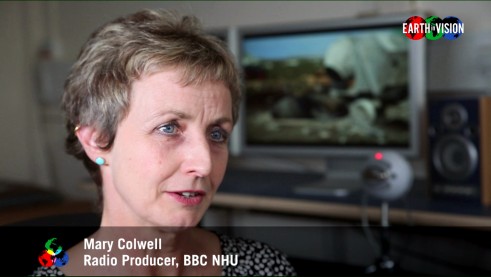
Video
Level: 1 Introductory
-
Tim Scoones - Earth in Vision
Watch now to access more details of Tim Scoones - Earth in VisionAward-winning Executive Producer at the BBC Natural History Unit Tim Scoones discusses his inspirations, Springwatch, citizen science, archive and new media.
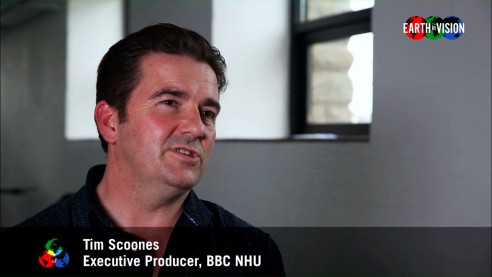
Video
Level: 1 Introductory
-
Julian Hector - Earth in Vision
Watch now to access more details of Julian Hector - Earth in VisionJulian Hector, Head of the BBC Natural History Unit and former seabird biologist, discusses commissioning programmes, the difference between radio and television and the relationship between broadcast and digital.
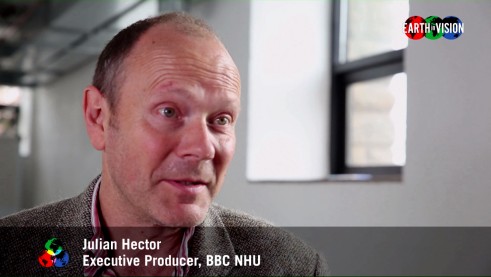
Video
Level: 1 Introductory
-
Doug Allan - Earth in Vision
Watch now to access more details of Doug Allan - Earth in VisionDoug Allan, Emmy and BAFTA award-winning cameraman, talks Blue Planet, changing technology and the changing planet.
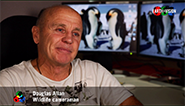
Video
Level: 1 Introductory
-
James Honeyborne - Earth in Vision
Watch now to access more details of James Honeyborne - Earth in VisionJames Honeyborne, producer and director of award-winning wildlife TV documentaries for BBC, Discovery Channel and National Geographic discusses environmental issues, the Africa series and the upcoming Oceans series.
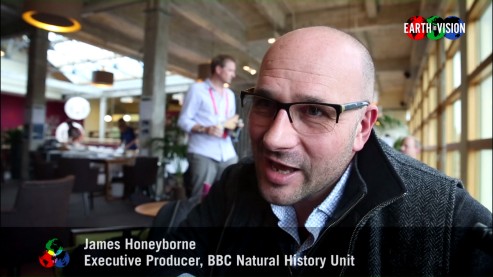
Video
Level: 1 Introductory
-
Caroline Underwood - Earth in Vision
Watch now to access more details of Caroline Underwood - Earth in VisionCaroline Underwood, award-winning series producer for Canadian television, looks back at how the landscape of environmental and natural history programming has transformed over the last few decades, and the challenges it faces today and moving forward into the future.
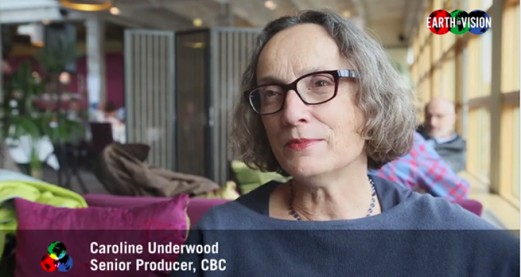
Video
Level: 1 Introductory
-
James Smith - Earth in Vision
Watch now to access more details of James Smith - Earth in VisionJames Smith of the BBC's Natural History Unit talks about the experience of live broadcasting natural history content, as well as audiences craving the countryside in their homes, and how the NHU archival footage could be used to document the changing state of the UK's natural heritage.
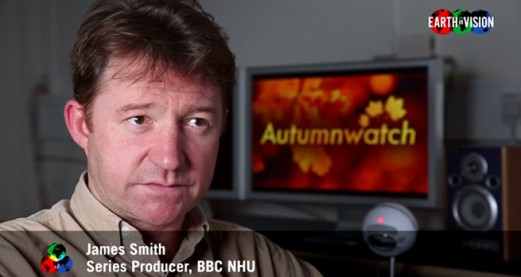
Video
Level: 1 Introductory
-
Paul Williams - Earth in Vision
Watch now to access more details of Paul Williams - Earth in VisionPaul Williams of the BBC's Natural History Unit discusses how to make wildlife go viral and how to create awareness of environmental issues though natural history programming, as well as the creative opportunities of opening up the BBC's digital archive.
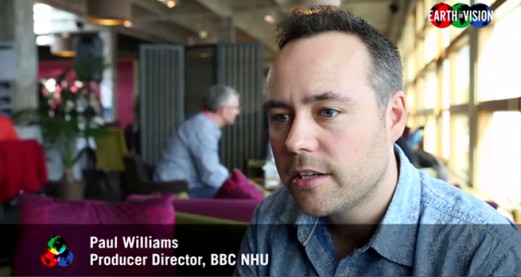
Video
Level: 1 Introductory
-
Lisa Sargood - Earth in Vision
Watch now to access more details of Lisa Sargood - Earth in VisionLisa Sargood, award-winning former Science and Nature Commissioner at the BBC, introduces to the debate around natural history broadcasting the question of how digital technologies, social media platforms and the overall infrastructure of information will be critical to the future of environmental programming.
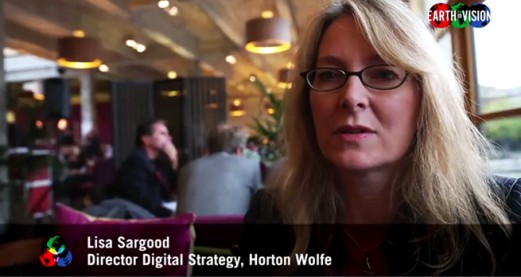
Video
Level: 1 Introductory
-
Krishan Arora - Earth in Vision
Watch now to access more details of Krishan Arora - Earth in VisionKrishan Arora, consultant producer and former BBC commissioner, discusses the issues around commissioning environmental programmes in both the UK and abroad - including the once-upon-a-time industry reluctance to use the word "environment" - and outlines the ethical issues surrounding making archives open to the public.

Video
Level: 1 Introductory
-
Dan Rees - Earth in Vision
Watch now to access more details of Dan Rees - Earth in VisionDan Rees, of the BBC's Natural History Unit, shares his insights into the extent to which environmental issues can be incepted into blue-chip natural history programming; and what the benefits of opening up the BBC's archive could be, in particular when it comes to the future of crafting climate change messages.
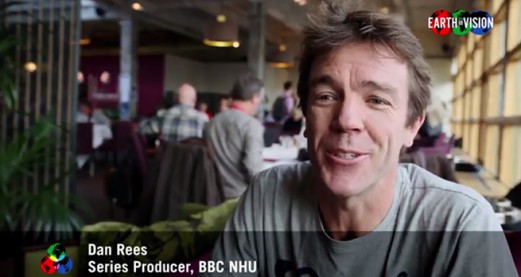
Video
Level: 1 Introductory
-
Harry Marshall - Earth in Vision
Watch now to access more details of Harry Marshall - Earth in VisionHarry Marshall, Creative Director at Icon Films, discusses the ethics of opening up private and public archives, as well as the conservation of king cobras, environmental filmmakers around the world, and the box office success of River Monsters.
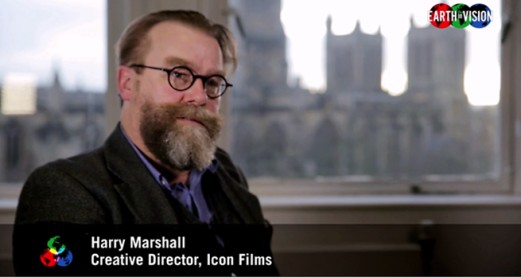
Video
Level: 1 Introductory
-
Dominic Weston - Earth in Vision
Watch now to access more details of Dominic Weston - Earth in VisionDominic Weston, a seasoned series producer of natural history programming, discusses the place of storytelling in natural history filmmaking, whether environmental messages can be packaged as entertaining television, and the future of wildlife television.
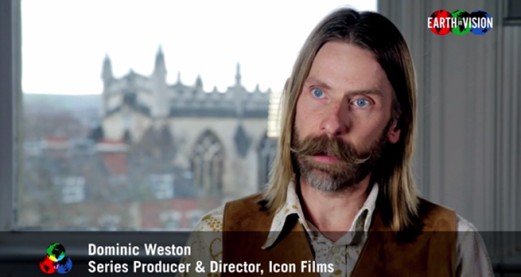
Video
Level: 1 Introductory
-
Ade Thomas - Earth in Vision
Watch now to access more details of Ade Thomas - Earth in VisionAde Thomas, founder of Green.TV, shares his insights on whether environmental programming is doomed to be bad box-office, the opportunities of online broadcasting and the potential for new technology to report on the environment.
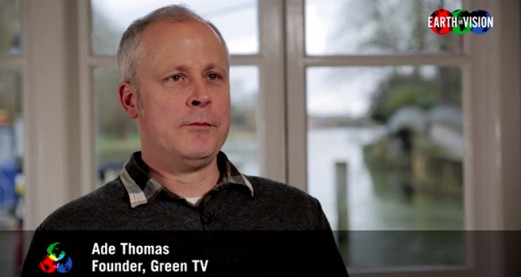
Video
Level: 1 Introductory
-
Dawn Parsonage-Kent - Earth in Vision
Watch now to access more details of Dawn Parsonage-Kent - Earth in VisionDawn Parsonage-Kent, Creative Director at Green.TV, expands on green television, how to rebrand the vulture, and the implications of changing audiences for environmental broadcasting.
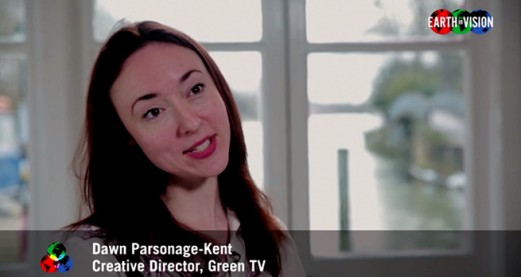
Video
Level: 1 Introductory
-
David Allen - Earth in Vision
Watch now to access more details of David Allen - Earth in VisionDavid Allen, head producer at Passion Planet, discusses how to turn blue-chip filmmaking on its head, the importance of compelling stories, and the opportunities around opening up archives.
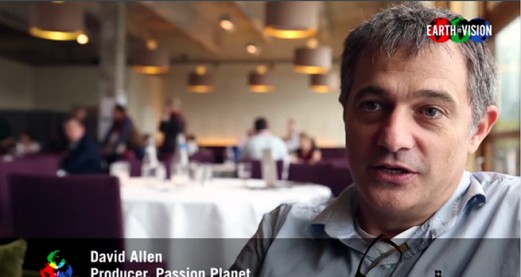
Video
Level: 1 Introductory
-
Abbie Barnes - Earth in Vision
Watch now to access more details of Abbie Barnes - Earth in VisionAbbie Barnes, founder of Song Thrush Productions, describes what it is like starting out as a young natural history filmmaker, exploring wildlife in Britain, and the role of social media in connecting with new audiences.
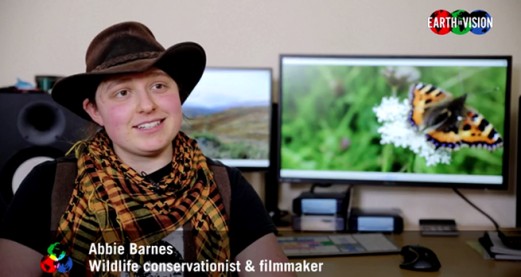
Video
Level: 1 Introductory
-
Jack Perks - Earth in Vision
Watch now to access more details of Jack Perks - Earth in VisionJack Perks, underwater cameraman and fish aficionado, describes what it is like starting out as a young natural history filmmaker, exploring wildlife in Britain, and the role of social media in connecting with new audiences.
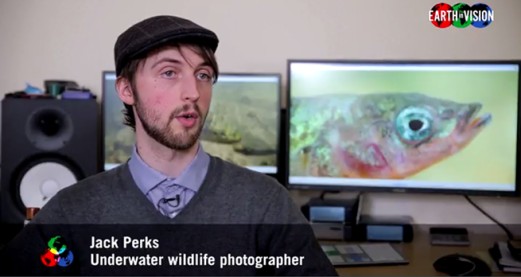
Video
Level: 1 Introductory
Rate and Review
Rate this video
Review this video
Log into OpenLearn to leave reviews and join in the conversation.
Video reviews